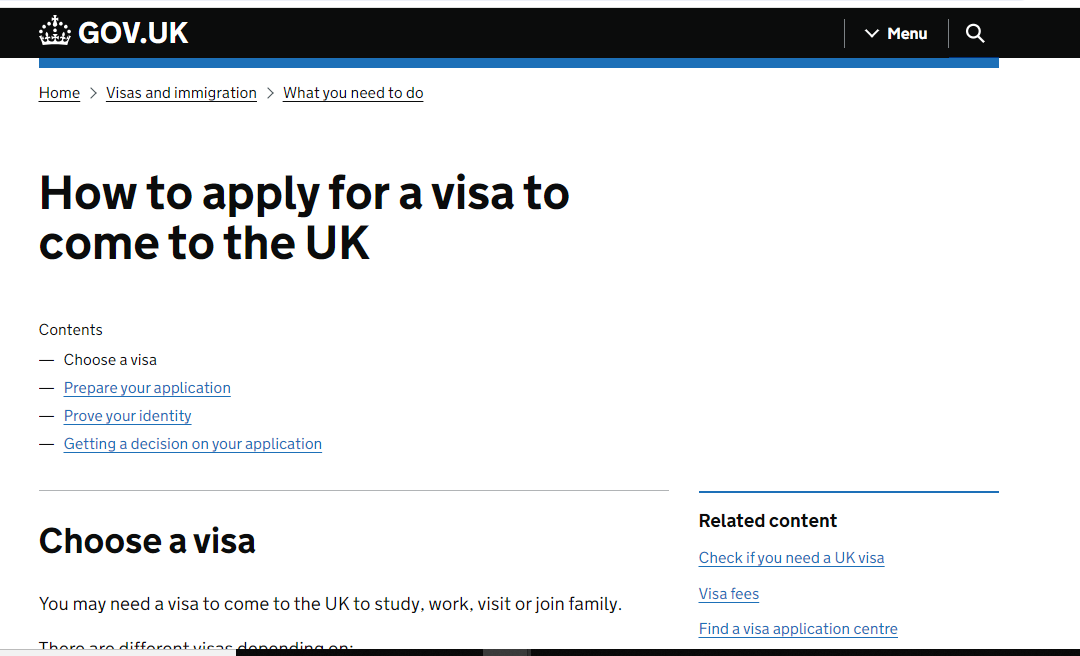6 Visa Pitfalls That Can Derail Your UK Dreams
Many aspiring immigrants find their dreams derailed by common visa pitfalls that can lead to delays, rejections, or even legal consequences. To ensure a smoother journey towards your UK goals, you must be aware of these potential obstacles and take proactive steps to avoid them.
In this article, we’ll explore six visa pitfalls that can hinder your UK aspirations and provide you with the knowledge to sidestep these challenges.
Pitfall #1: Not choosing the appropriate visa category
One of the most critical steps in the UK visa application process is selecting the appropriate visa category. Failing to choose the right visa type can have serious consequences, such as an automatic rejection or accusations of misrepresentation. To avoid this pitfall, thoroughly research the main UK visa categories and their intended purposes. Some common categories include work visas, student visas, family visas, and visitor visas. Assess your specific circumstances, such as your reason for moving to the UK, the duration of your intended stay, and your long-term goals. By understanding the requirements and limitations of each visa category, you can make an informed decision and increase your chances of success.
Some common categories include work visas, student visas, family visas, and visitor visas. Assess your specific circumstances, such as your reason for moving to the UK, the duration of your intended stay, and your long-term goals. By understanding the requirements and limitations of each visa category, you can make an informed decision and increase your chances of success.
Read: The 4 Best and Worst Cities for Finding Jobs in the UK
Pitfall #2: Failing to meet the eligibility criteria
Each UK visa category has its own eligibility criteria that applicants must meet to qualify. Neglecting to review and satisfy these requirements thoroughly can quickly derail your visa application. To avoid this pitfall, carefully study the eligibility criteria for your chosen visa category and ensure that you meet all the necessary qualifications. Common eligibility factors include English language proficiency, financial stability, educational qualifications, and work experience.
For example, if you’re applying for a Skilled Worker visa, you’ll need to demonstrate that you have a job offer from a licensed sponsor, meet the minimum salary threshold, and possess the required English language skills. You’ll be better positioned to submit a strong and compliant visa application by diligently addressing each eligibility criterion.
Pitfall #3: Submitting incomplete or incorrect documentation
The UK visa application process requires a wide range of supporting documents to validate your eligibility and intentions. Submitting incomplete, inaccurate, or outdated documentation can raise red flags and lead to visa rejections. To avoid this pitfall, carefully compile all the necessary documents as specified by your chosen visa category. These may include your passport, educational certificates, financial statements, employment contracts, and proof of accommodation.
Double-check each document to ensure it is complete, accurate, and meets the required format and specifications. Pay close attention to details such as dates, signatures, and translations. If you’re unsure about any aspect of the documentation requirements, don’t hesitate to seek clarification from the UK visa authorities or a qualified immigration professional. By submitting a well-prepared and error-free documentation package, you’ll demonstrate your commitment to the visa process and increase your chances of approval.
Read: Skilled Worker Visa vs Intra-Company Transfer: Comparing UK Work Options
Pitfall #4: Not demonstrating sufficient ties to your home country
A common visa pitfall that can derail your UK dreams is failing to demonstrate strong ties to your home country. The UK visa authorities want to ensure that you have compelling reasons to return to your home country after your stay in the UK. Neglecting to provide evidence of these ties can raise doubts about your intentions and lead to visa rejections. To avoid this pitfall, gather documentation that proves your significant connections to your home country.
This may include evidence of your employment, such as a letter from your employer confirming your job title, responsibilities, and expected return date. If you own property in your home country, provide proof of ownership, such as title deeds or mortgage statements. If you have family responsibilities, such as dependent children or elderly parents, include birth certificates or medical records that demonstrate these ties.
By presenting a comprehensive package of evidence that showcases your strong roots in your home country, you’ll reassure the visa authorities of your commitment to returning after your UK stay.
Pitfall #5: Underestimating the financial requirements
Another visa pitfall that can hinder your UK aspirations is underestimating the financial requirements. The UK visa authorities need to be confident that you have sufficient funds to support yourself during your entire stay in the country. Failing to demonstrate adequate financial resources can result in visa rejections. To avoid this pitfall, thoroughly research the financial requirements for your specific visa category and intended length of stay.
For example, if you’re applying for a Student visa, you’ll need to show that you have enough money to cover your tuition fees and living expenses for the duration of your course. If you’re applying for a Skilled Worker visa, you’ll need to meet the minimum salary threshold and prove that you can support yourself without relying on public funds.
To calculate the required funds accurately, consider factors such as accommodation costs, transportation expenses, and any dependents who may be joining you. Provide clear and verifiable evidence of your financial resources, such as bank statements, scholarship letters, or sponsorship agreements. Demonstrating your financial stability and preparedness’ll increase your chances of visa success.
Pitfall #6: Neglecting to seek professional advice when needed
 Navigating the complex world of UK visas can be overwhelming, especially for those with unique circumstances or complicated cases. A common pitfall is neglecting to seek professional advice when needed, which can lead to costly mistakes and visa rejections. To avoid this pitfall, recognize when your situation may benefit from the guidance of a qualified immigration professional.
Navigating the complex world of UK visas can be overwhelming, especially for those with unique circumstances or complicated cases. A common pitfall is neglecting to seek professional advice when needed, which can lead to costly mistakes and visa rejections. To avoid this pitfall, recognize when your situation may benefit from the guidance of a qualified immigration professional.
If you have a complex employment history, a criminal record, or a previous visa refusal, consulting with an experienced immigration advisor or lawyer can be invaluable. These professionals can provide personalized advice, help you navigate the visa requirements, and ensure that your application is as strong as possible. When seeking professional advice, be sure to choose a reputable and qualified provider.
Look for immigration advisors or lawyers who are registered with the Office of the Immigration Services Commissioner (OISC) or the Solicitors Regulation Authority (SRA). Read reviews, ask for referrals, and schedule consultations to find a professional who understands your specific needs and can provide tailored guidance. By investing in professional advice when needed, you’ll minimize the risk of visa pitfalls and increase your chances of achieving your UK dreams.


